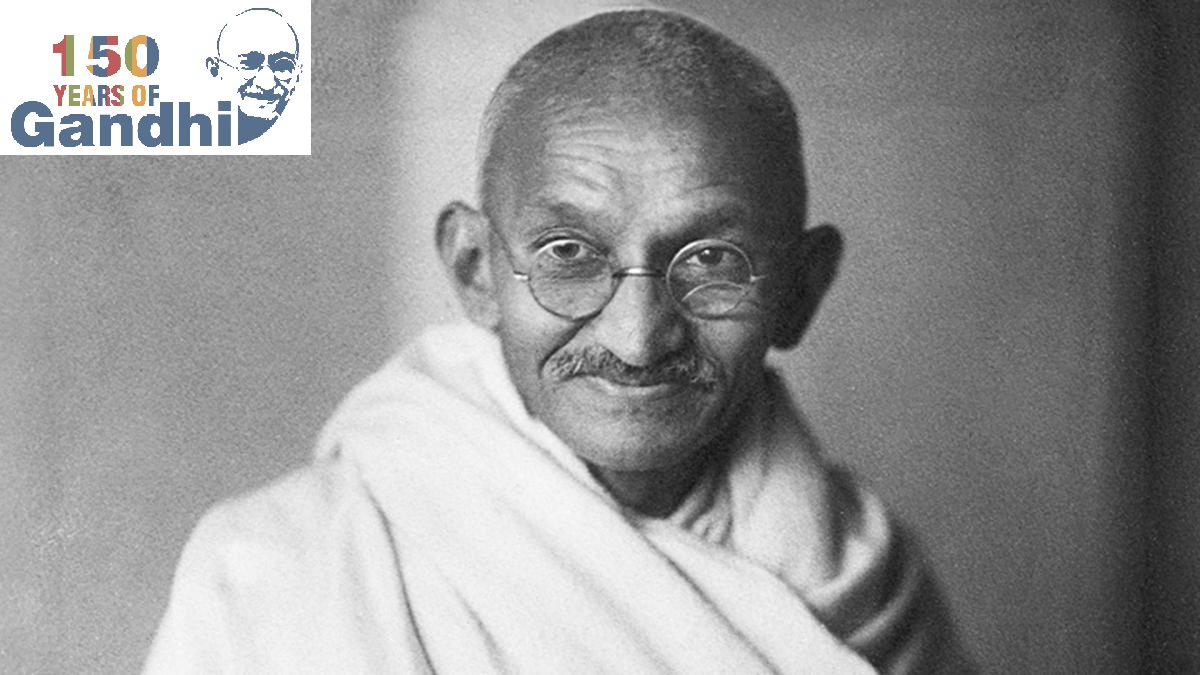Exclusive blog by special invitation

As the nation celebrates the 150th year of Gandhi’s birth, I am reminded of his principles of non-violence, especially due their inclusion of our four-legged, furry and feathered friends. I, therefore, want to take this opportunity to advocate a more compassionate lifestyle by saying no to factory farming.
“The greatness of a nation and its moral progress, can be judged by the way its animals are treated” – Mahatma Gandhi.
While Mohandas Karamchand Gandhi is the most popular world icon for equality and dignity, he was also a vociferous champion for animals. Their welfare was so important to Gandhi that he was a committed vegetarian. So much so that he proudly proclaimed, “…the basis of my vegetarianism is not physical, but moral. If anybody said that I should die if I don’t take beef tea or mutton, even on medical advice, I would prefer death.”
But, while he took a moral stand on the subject when he said, he never dictated what others should do. His position on vegetarianism was one that required his to maintain a delicate balance given how his satyagrah required bringing together diverse communities, classes and castes, many of whom rely on animal protein as a key part of their nutrition, many of whom have suffered oppression and discrimination for centuries because of their diet.
Gandhi showed us how one could influence and advocate without forcing people and alienating them. This is in sharp contrast to the beliefs and modus operandi of modern day cow protection groups and lynch mobs that would rather kill than die for their beliefs.
What helped Gandhi build meaningful bonds with everyone was that he did not believe in imposing his will or beliefs on anyone. That is what inspires me as well. I am vegan and while I encourage friends to give this lifestyle a shot, I recognise their freedom of choice, their right to decide what they eat. I only advocate making as many, big or small, changes that makes their lifestyle a little more compassionate.
However, this is not to say I agree wholeheartedly with everything Gandhi said with respect to vegetarianism. For instance, on the subject of eggs, Gandhi trampled on some shells when he said, “… eggs are regarded by the layman as a flesh food. In reality, they are not. Nowadays sterile eggs are also produced. The hen is not allowed to see the cock and yet it lays eggs. A sterile egg never develops into a chick. Therefore, he who can take milk should have no objection to taking sterile eggs.” I find this a little ill worded and thus divorced from reality.
Poultry farms are where one can witness some of the cruellest scenes. Hens are put in small cages, sometimes stocked over each other for their entire life. The male chicks are sent to the grinder where they are ground alive. The beaks of female chicks are chipped so that they don’t poke each other. There are no happy stories in factory farms. While there is a debate in the scientific and vegan community about the helpful nutrients of eggs, it would be nice if those who consume eggs choose free range ones instead of factory farmed ones. And cage-free farms could be freer for the birds where animals get a little more space to spread a wing or two.
Similarly, for all those who are okay with milking gau-mata, how can you ignore the cruelty in the milk production industry? Cows are made pregnant by artificial insemination and spend their entire life in confinement without space to move or socialise. There are injections administered so as to cause uterine convulsions and cause a spike in milk production. Quite opposite to the romanticed idea of a happy cow sharing its excess milk, a simple Youtube search would show how male calves are tied away from their mothers, many who starve to death or reach slaughter houses.
I do not stand for the slaughter of animals, and I am certain that Gandhi didn’t either. I miss Gandhi today, for he would have stood against animal abuse, and more importantly against factory farming and commercial exploitation of cows for milk. He would have stood along with the young Fridays for Future brigade when they speak about how a compassionate choice in terms of food and sustainable agriculture would lead the way in ensuring that our earth doesn’t get antagonised to a point of destruction.
This is why I urge my non-vegetarian friends to consider two things; one, boycott factory farming and only choose free range farm produce, and two, consider going vegan or at least vegetarian once a week. Perhaps this will help us all honour Gandhi’s ideals of non-violence and compassion in a sustainable and meaningful manner, and help our planet deal with climate change.